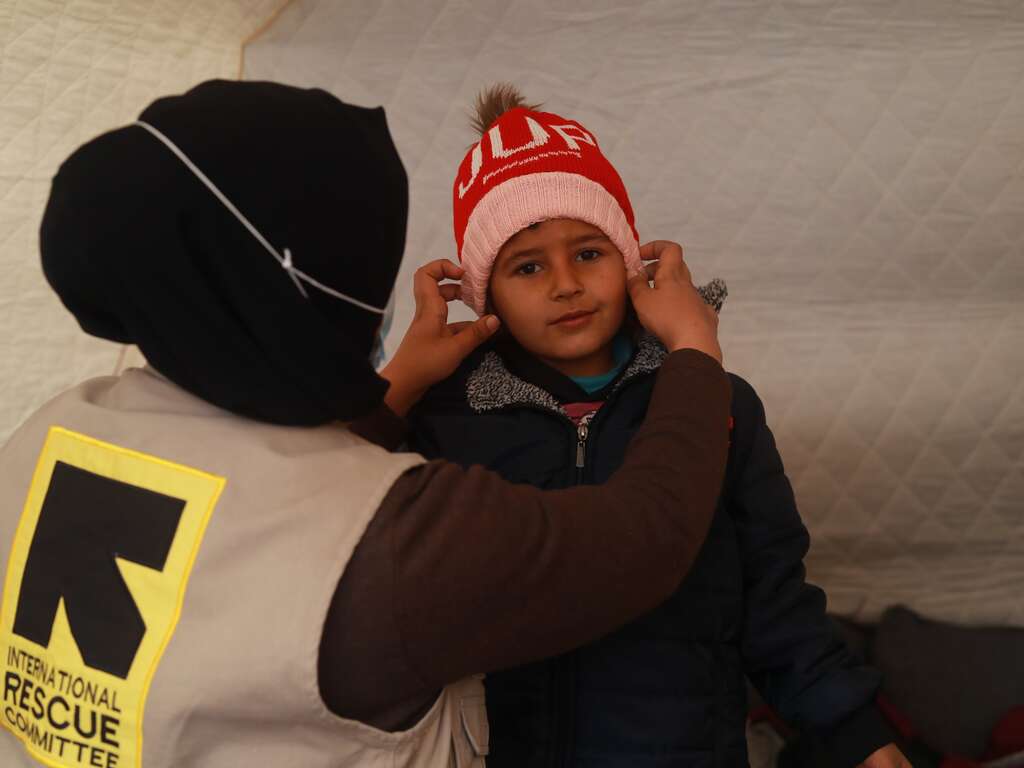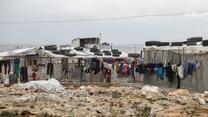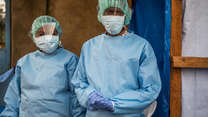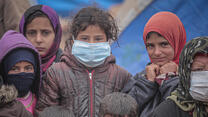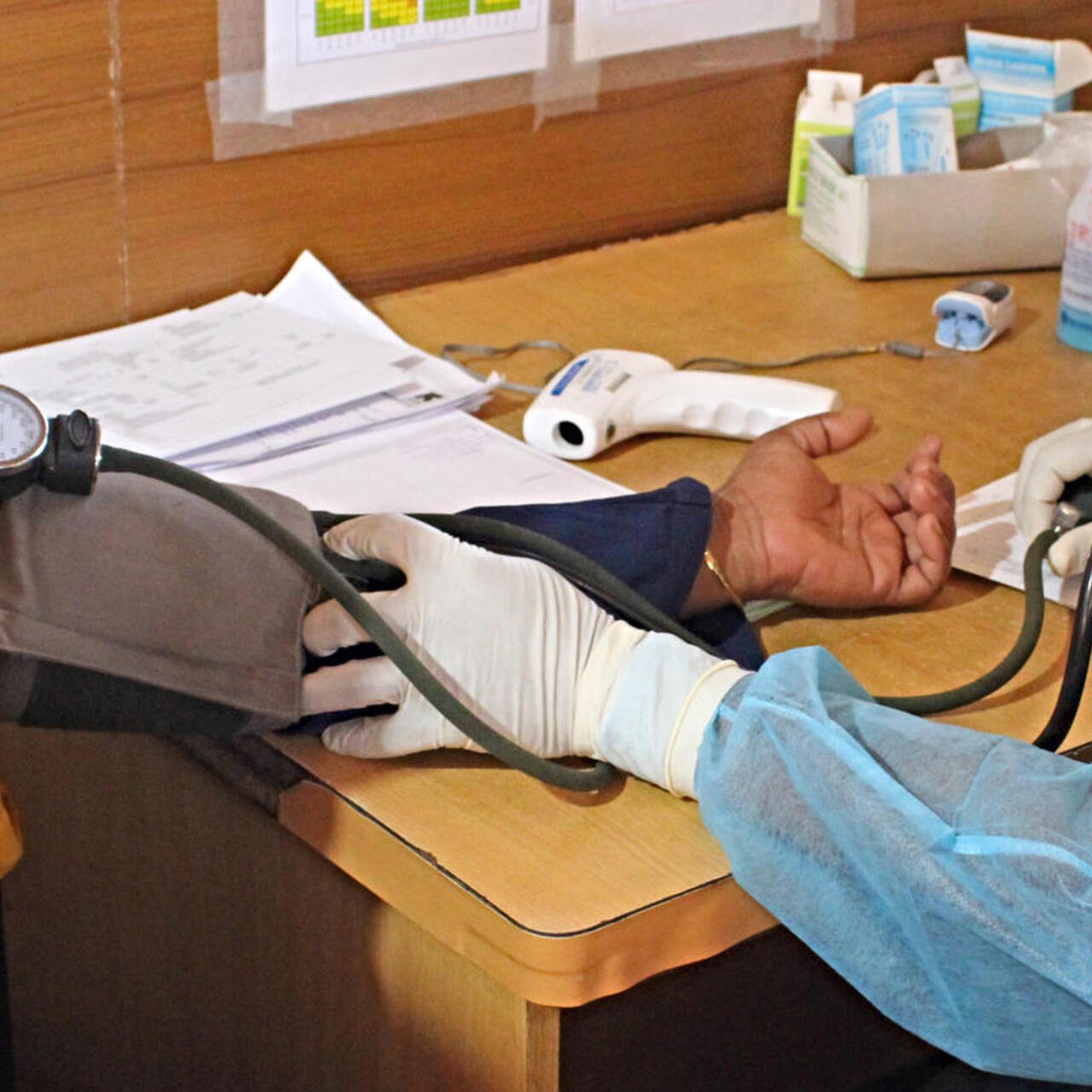
With COVID-19 spreading globally, and now confirmed in crisis-affected countries with International Rescue Committee operations, like Afghanistan, Iraq, Burkina Faso and Yemen, the IRC is ramping up its response to the outbreak with a focus on crisis zones with especially weak health systems.
Dr. Stacey Mearns, senior technical advisor for emergency health at the IRC, and our team of experts answer a few key questions about pandemics and how COVID-19 is impacting refugees and the IRC’s work with vulnerable populations.
What is a pandemic?
A pandemic describes a disease outbreak that sustains person-to-person transmission, spreads throughout the world and causes illness or death. The term pandemic does not relate to the severity or fatality of a disease, but rather, the geographic scale of an outbreak, which is related to the infectiousness of a disease, as well as the disease being new. No one has immunity, so the whole global population is at risk.
While a pandemic refers to a global outbreak, it’s more helpful to conceptualize it as multiple, simultaneous outbreaks occurring across many different countries and regions. Not all countries and communities will be affected equally or at the same time by a pandemic.
While a pandemic refers to a global outbreak, it’s more helpful to conceptualize it as multiple, simultaneous outbreaks occurring across many different countries and regions.
How can countries respond to a pandemic?
When an outbreak of disease reaches pandemic levels, as COVID-19 has, there is typically a move away from outbreak containment, which centres on preventing transmission, to outbreak mitigation, which focuses on slowing and reducing the negative effects of transmission. We should expect to see a mixture of containment and mitigation measures used by different countries around the world at different points in time.
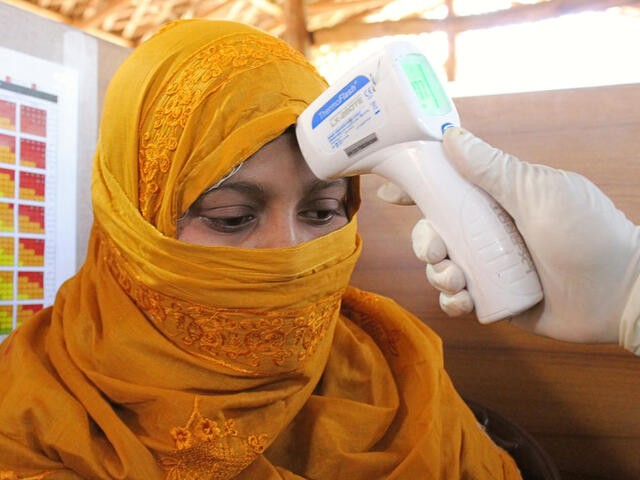
How long will the coronavirus pandemic last?
A pandemic will not be a short, sharp event. A pandemic may come in several waves over 12 months or more—this is typical of influenza pandemics. We don’t yet know how long the COVID-19 pandemic will last, but we should be prepared to have the coronavirus in some way in our lives for the next 9 to 12 months. It could be less, it could be longer.
We don’t yet know how long the COVID-19 pandemic will last, but we should be prepared to have the coronavirus in some way in our lives for the next 9 to 12 months. It could be less, it could be longer.
Are border closures effective against a pandemic?
There’s no evidence to suggest that border closures are effective in preventing or reducing transmission of this virus or any infectious disease. In our modern world, people will still move so it can create a false sense of security that is not there. This typically can drive the transmission of infections underground, which obviously has the opposite impact on preventing transmission.
Secondly, efforts to control borders divert a lot of resources away from focusing on what would actually make a difference—including preparing your health system and work force, educating and working with the public and enhancing disease surveillance systems.
How will the COVID-19 pandemic affect families caught in crisis?
Refugees, families displaced from their homes and those living in crisis zones will be hit the hardest by this pandemic.
COVID-19 will thrive in conflict zones like Yemen and Syria, putting the lives of thousands of civilians in even more danger, and is another reason for ceasefires to be implemented. Refugees and displaced families will be at increased risk, with millions confined to overcrowded camps or cities where a disease like this can spread rapidly through close-knit populations.
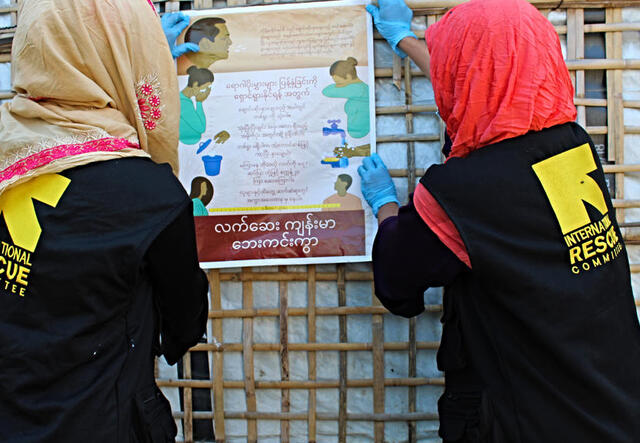
Border closures will also prevent vulnerable populations from accessing lifesaving needs in neighbouring countries. For example, as Colombia recently closed its border with Venezuela, many Venezuelans who cross the border on a daily basis for food, work and health care are now stranded without access to basic lifesaving needs.
Additionally, many refugees and other vulnerable populations work in “informal sector” jobs (such as domestic work or street vending) and do not get paid time off or sick leave. As countries put in place measures to enforce social distancing and businesses shut and events are cancelled, those working in the informal sector will be the most impacted. These families will no longer earn an income and be unable to feed themselves and their families.
Last but not least, COVID-19 is disrupting food supply chains and markets in places where people already struggle to get the food they need. It is vital that markets and changing needs are properly assessed and the response includes both emergency cash and initiatives to stimulate agriculture and food production.
How can we curb the spread of COVID-19 in crisis zones with weak health systems?
The COVID-19 pandemic is a powerful reminder of the world’s inequalities, and how we are only as strong as our weakest health system. People living in crisis and conflict do not have access to strong health systems and are more vulnerable to this disease as a result.
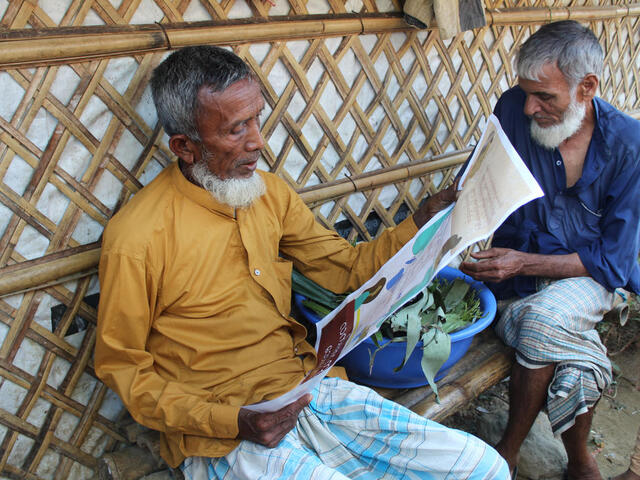
Countries where the IRC operates need support to strengthen their capacity to help them rapidly detect, respond and prevent further transmission of the disease.
IRC teams on the ground are doing a great job but need more support to invest in:
- Strong surveillance to detect the disease
- Good infection prevention and control at health clinics and gathering points
- An increase in protective gear, medical supplies and drugs
- Training of health workers to be able to identify, isolate and treat the symptoms of the disease
- Strong risk communication and community engagement to ensure communities have the knowledge and resources to protect themselves and prevent the transmission of the virus
As governments enforce restrictions to mitigate the spread of COVID-19, they must consider how to ensure the delivery of lifesaving humanitarian aid can continue to reach those in need safely, particularly as they impose restrictions on movements.
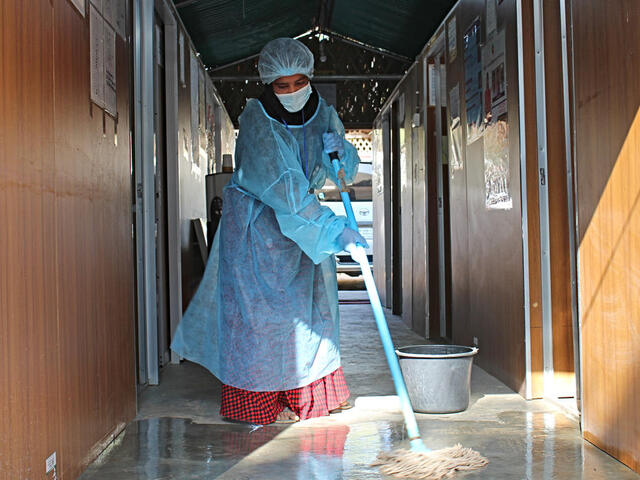
Correspondingly, donors must mobilize and send resources, so that humanitarian organizations like the IRC can respond to the pandemic in crisis-affected countries, and that existing lifesaving programmes can continue to reach those in need.
What are some long-term measures world leaders can put in place now?
COVID-19 demonstrates how easily a disease can spread across the globe. The international community must invest in weak health care systems now for the safety of everyone and before the next pandemic. We must invest in emergency preparedness, water and sanitation, and public risk communication, so that preventive measures can be put into place quickly and people have the means to follow them. We also need to include gender analysis in all policy and programmes so that we understand and address the specific needs of women and girls during a crisis.
As the coronavirus pandemic is going to have long-lasting impacts on vulnerable communities and lead to increased humanitarian need across the globe, aid agencies like the IRC will rely on continued commitment from donors to scale up lifesaving programming and meet these needs.
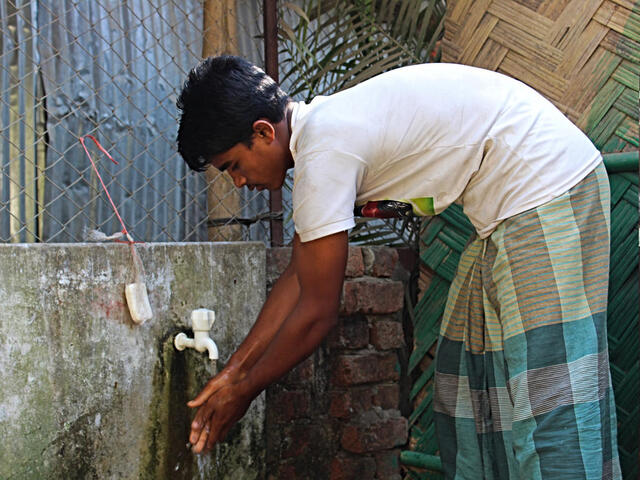
What can you do to help?
The COVID-19 pandemic has reached countries with weak health systems, which are less prepared to combat the disease—and it has the potential to trigger a humanitarian disaster for the millions of vulnerable families who are already caught in crisis.
As the world struggles to deal with the fallout of COVID-19 across its richest nations, the needs of the most vulnerable must not be neglected or forgotten.
The IRC is providing lifesaving programmes in countries threatened by the disease. We are working rapidly across three areas: to mitigate and respond to the spread of the coronavirus within vulnerable communities, protect IRC staff, and ensure the continuation of our lifesaving programming as much as possible across more than 40 countries worldwide.
We are acting as quickly as we can, but need your urgent support. Donate today to help us get ahead of the virus before it fully hits crisis zones worldwide.
